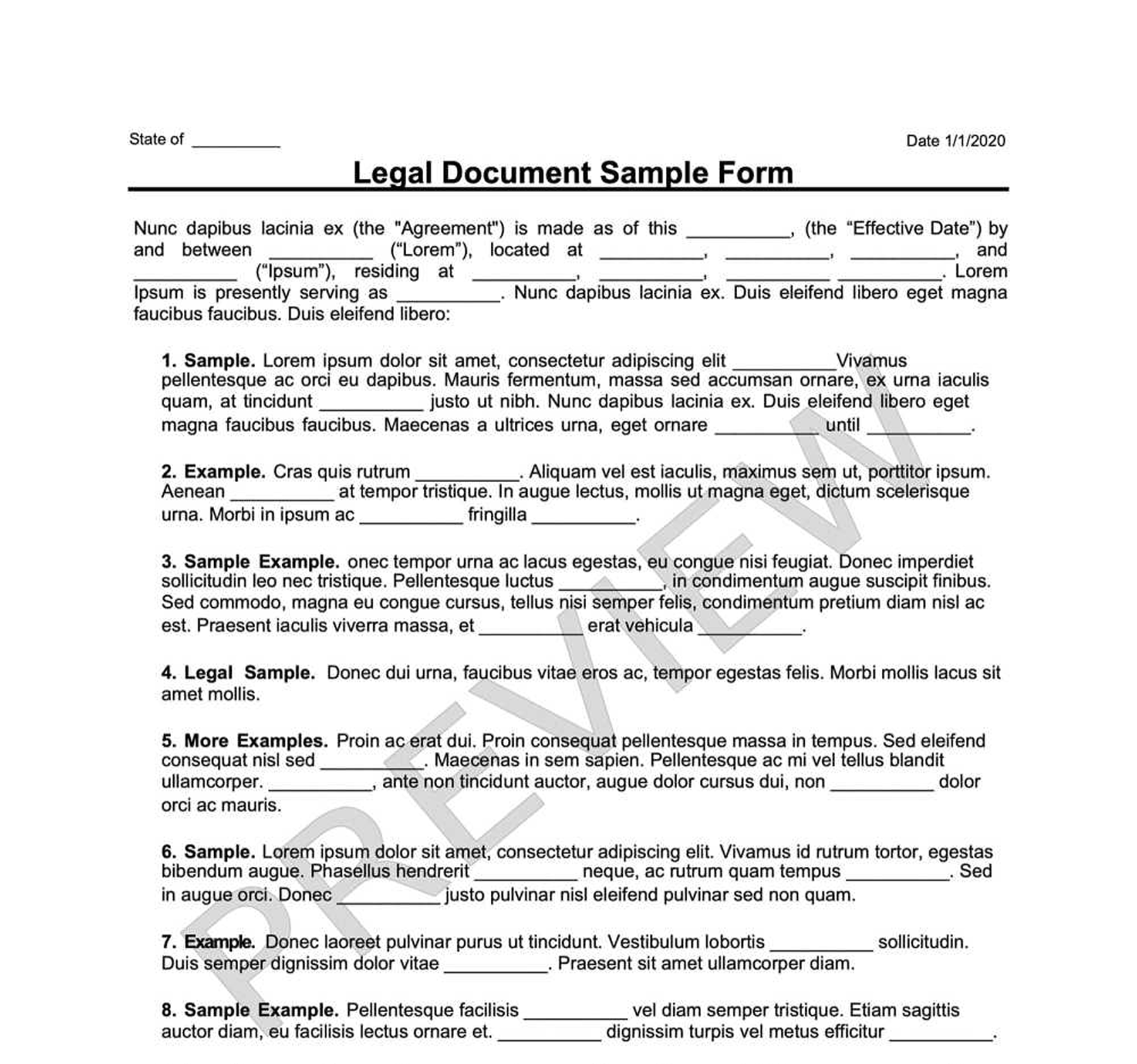Independent Contractor Confidentiality Agreement
The Independent Contractor Confidentiality Agreement protects the hiring company's confidential information against free sharing.

How it Works
Build your selected document.
Answer a few simple questions with step-by-step instructions.
Print & download forms instantly. Sign & make it legal.
What Is a Independent Contractor Confidentiality Agreement?
People and companies hire independent contractors all the time. This could be anything from cleaning services, landscaping, web design, and anything jobs requiring a short-term contract.
That said, if the independent contractor is given access to company or personal secrets, you can use an Independent Contractor Confidentiality Agreement if you don't want that information to get out.
What Is an Independent Contractor Confidentiality Agreement?
Confidentiality Agreements are not a novelty. They are routinely used to prevent valuable information from being shared unintentionally or intentionally. In employment contracts, for example, they can be found in the form of a clause.
An Independent Contractor Confidentiality Agreement can be introduced even if you already have an existing agreement. If new circumstances arose, you could ask the independent contractor to sign.
Other Names for Independent Contractor Confidentiality Agreement
Depending on your state, an Independent Contractor Confidentiality Agreement may also be known as:
- Independent Contractor CDA
- Independent Contractor Confidential Disclosure Agreement
- Independent Contractor Secrecy Agreement
Who Needs an Independent Contractor Confidentiality Agreement?
Any person or hiring entity concerned with potential leaks can use an Independent Contractor Confidentiality Agreement. Nowadays, most people and companies expect it and have no problem signing one.
Why Use Swyft Forms for Your Independent Contractor Confidentiality Agreement
Customized for you, by you
Create your own documents by answering our easy-to-understand questionnaires to get exactly what you need out of your Independent Contractor Confidentiality Agreement.
Specific to Your Jurisdiction
Laws vary by location. Each document on Swyft Forms is customized for your state.
How to Create an Independent Contractor Confidentiality Agreement with Swyft Forms
If you have a business and frequently need to hire independent contractors, the paperwork quickly adds up. It also means you should probably have a customized template to speed up this process.
Let Swyft Forms help with our extensive library of attorney-vetted legal forms. The process is fast and easy. All you have to do is fill out our easy-to-understand questionnaire. Once complete, simply download your form as a PDF or Word document from your secure online account.
What Information Will I Need to Create My Independent Contractor Confidentiality Agreement?
To create your document, please provide:
- Hiring Entity: The legal name of the individual or company hiring the independent contractor.
- Independent Contractor: The legal name of the independent contractor and contact information.
- Effective Date: The date when the agreement goes into effect.
- Governing Law: Identify the judicial system to be used in the event of a dispute.
- Purpose: Describe why the deal is required.
- Confidential Information: A detailed explanation of what constitutes confidential information in this agreement.
- Examples: Cite examples of confidential information.
- Duration: Designate how long the deal is to be valid and if it can be extended.
- Additional Clauses: Any other clauses and provisions such as non-compete, non-solicitation, or non-disparagement.
- Signatures: Both parties need to sign the agreement.
Independent Contractor Confidentiality Agreement Terms
- Unilateral: A decision, action, or agreement affecting or arrived at by only one party
- Bilateral: A decision, action, or deal involving or arrived at on both sides
- Proprietary Information: Trade secrets a company wants to keep private
- Injunction: A court order to do or to refrain from doing
- Non-Solicitation: An agreement to not solicit the company's client or employees
- Non-Compete: An agreement to not compete against the hiring entity
- Indemnity: Protection against legal liability
Independent Contractor Confidentiality Agreement Signing Requirements
The Independent Contractor Confidentiality Agreement becomes valid when signed by both parties. This is enough to make it legally binding and enforceable. Notarization is not required.
What to Do with Your Independent Contractor Confidentiality Agreement
After signing, the Independent Contractor Confidentiality Agreement becomes valid, and both parties should keep a physical copy of the agreement and file it somewhere safe.
Other Names for Independent Contractor Confidentiality Agreement
- Independent Contractor Confidentiality Agreement Form
- Independent Contractor Confidentiality Agreement Document
- Independent Contractor Confidentiality Agreement Agreement
- Independent Contractor Confidentiality Agreement Contract
- Independent Contractor Confidentiality Agreement Template
- Independent Contractor Confidentiality Agreement Checklist
Who Needs a Independent Contractor Confidentiality Agreement?
Why Use Swyft Forms for Your Independent Contractor Confidentiality Agreement
Customized for you, by you
Specific to Your Jurisdiction
Why choose Swyft Forms?
Create professional documents for thousands of purposes.
Make unlimited documents and revisions.
Our documents are vetted by lawyers and are applicable to all 50 states.
